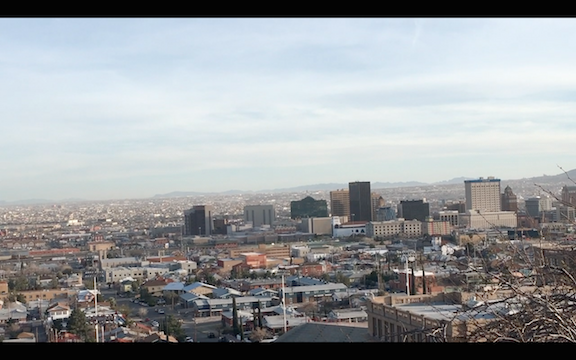EL PASO – Lawmakers from this border community are concerned about the harm that would result if Texas begins requiring law enforcement and other agencies to act as immigration agents.
The Texas Senate on Feb. 9 passed SB4, which Sen. Jose Rodriguez, D-El Paso, called “a thinly disguised attack on immigrant communities.”
The so-called “anti-sanctuary cities” bill would allow the state to penalize cities over policies that obstruct enforcement of immigration law or discourage police agencies from inquiring about a person’s immigration status. The Texas House is now considering its version of the bill.
The senator says he, along with other opponents of the bill, offered amendments to decrease the negative impacts the passage of bill would have on health, safety and social life of communities. However, most of the amendments were not adopted.
He explained the amendments were mostly aimed at reducing “costly liability for the affected entities, which is almost every jurisdiction that has commissioned officers – from cities to health providers to water districts.”
Among amendments that were adopted were some exemptions and a community education plan.
- Amendment 21, sponsored by Rodriguez, exempts public health departments from inquiring about immigration status.
- Amendment 25 by Senator Carlos Uresti, D-San Antonio, includes religion as a class protection under SB4, which prohibits using someone’s religion as a basis to ask about immigration status.
- Amendment 38 by Senator Judith Zaffirini, D-Laredo, requires state agencies subject to the bill to conduct community outreach programs to inform the public that no employee will ask about immigration status of a detained person if they are victims or witnesses of crimes
The bill includes civil penalties for law enforcement and government officials who fail to enforce the law.

If the SB4 bill passes communities like El Paso could lose state funding.
Prior to the start of the current session, House members of the El Paso Legislative delegation raised concern over the new proposal at an El Paso Times Live town hall forum Jan. 16 at the University of Texas at El Paso.
“We’re living in a dangerous situation here where the president and in many ways Governor Abbott think they’re gangs and think they can just take, they can penalize communities by taking grants that have legislative intent for certain programs in our community, and he can just take them away if we declare that we’re a sanctuary city,” said Rep. Cesar Blanco.
Rep. Joe Moody said when local law enforcement is federalized to watch for immigration violations, it can lead to an increase in crime when witnesses won’t come forward.
“You create pockets of criminality in the outer parts of the county where crime runs rampant because everyone knows that no one’s going to call because of fear for the immigration consequences for them.
Rodriguez said it is important for citizens to contact their leaders on the issue.
“People need to let legislators and state leadership know what the consequences are and what impact and the real life examples of what these kinds of measures can have on peoples lives,” he said.
A group of El Pasoans attended a public hearing on the bill on Feb. 2
Among the attendees were El Paso County Judge, Veronica Escobar, El Paso Police Chief Greg Allen, El Paso County Commissioner Precinct 2 David Stout, Assistant County Attorney Christina Sanchez, and El Paso County Sheriff’s Commander Robert Flores. Members of the Border Network for Human Rights and the Greater El Paso Chamber of Commerce were also in attendance.
“I was struck by the very poignant stories that people were testifying about. Real life examples of what happens to immigrants in this country who are here trying to seek that American dream,” Rodriguez said.
SB4 passed the Senate with a 7 to 2 vote. The bill is now being considered by the House.
If the state were to find a policy in El Paso written or unwritten in violation of the sanctuary cities law El Paso could, “lose its state grant funding which covers a lot of very important funds,” Rodriguez said.
Senator Rodriguez said some of these funds include funds that help us fight against domestic violence, juvenile crime, address the needs of veterans, veteran’s court, and teen court.
Rodriguez says, “It’s not just funds that relate to the criminal justice system, parks and wildlife funds, grants, for example. Other grants that go for health and human services types of services.”
The senator said implementing SB4 will be require local governments to pay for it.
“This is referred to as an unfunded mandate when you pass a law and you don’t provide the funds to cover the police training that’s going to have to be done by the sheriff’s department by the police department, the constables and everybody, justice of the peace, everybody whose involved in this process will have to get training on the very complex, very complex immigration laws of this country,” he said.
Mandating that local agencies ask about immigration status could cause racial profiling and open up the doors for lawsuits against the cities and counties, Rodriguez said.
He says a similar bill to SB4 was introduced back in 2011, but was not passed. Since then, the bill has been proposed at every legislative session. Now that the Trump administration has called for a sanctuary city type of program Rodriguez sees a greater possibility that Texas may succeed in adopting sanctuary city legislation
